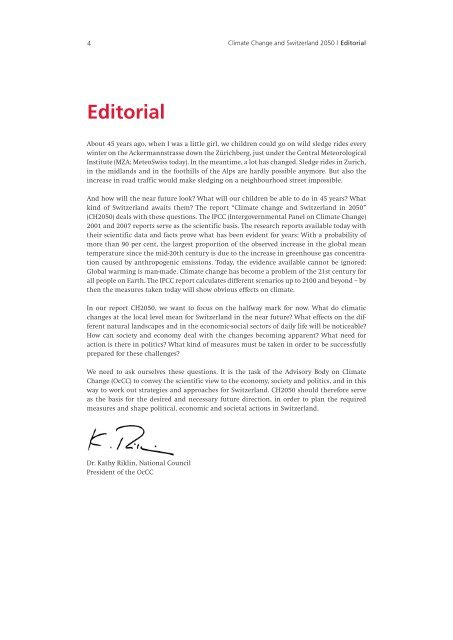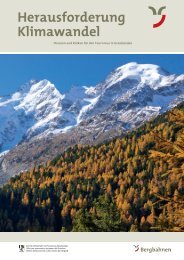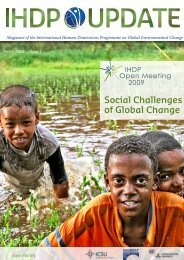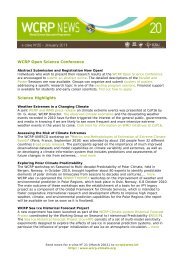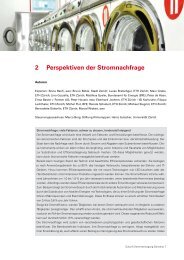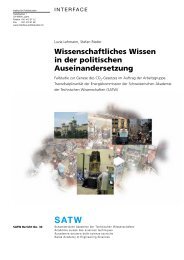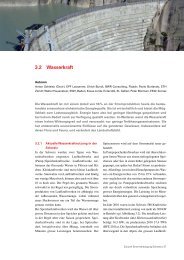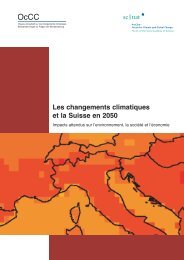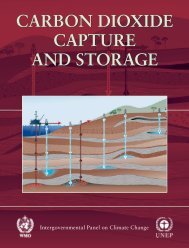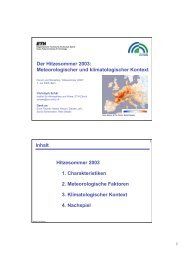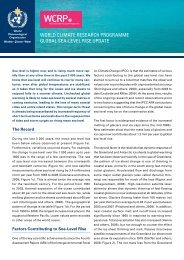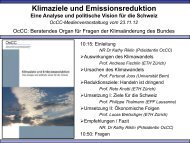Climate Change and Switzerland 2050 - OcCC - SCNAT
Climate Change and Switzerland 2050 - OcCC - SCNAT
Climate Change and Switzerland 2050 - OcCC - SCNAT
You also want an ePaper? Increase the reach of your titles
YUMPU automatically turns print PDFs into web optimized ePapers that Google loves.
4 <strong>Climate</strong> <strong>Change</strong> <strong>and</strong> Switzerl<strong>and</strong> <strong>2050</strong> | Editorial<br />
Editorial<br />
About 45 years ago, when I was a little girl, we children could go on wild sledge rides every<br />
winter on the Ackermannstrasse down the Zürichberg, just under the Central Meteorological<br />
Institute (MZA; MeteoSwiss today). In the meantime, a lot has changed. Sledge rides in Zurich,<br />
in the midl<strong>and</strong>s <strong>and</strong> in the foothills of the Alps are hardly possible anymore. But also the<br />
increase in road traffic would make sledging on a neighbourhood street impossible.<br />
And how will the near future look? What will our children be able to do in 45 years? What<br />
kind of Switzerl<strong>and</strong> awaits them? The report “<strong>Climate</strong> change <strong>and</strong> Switzerl<strong>and</strong> in <strong>2050</strong>”<br />
(CH<strong>2050</strong>) deals with these questions. The IPCC (Intergovernmental Panel on <strong>Climate</strong> <strong>Change</strong>)<br />
2001 <strong>and</strong> 2007 reports serve as the scientific basis. The research reports available today with<br />
their scientific data <strong>and</strong> facts prove what has been evident for years: With a probability of<br />
more than 90 per cent, the largest proportion of the observed increase in the global mean<br />
temperature since the mid-20th century is due to the increase in greenhouse gas concentration<br />
caused by anthropogenic emissions. Today, the evidence available cannot be ignored:<br />
Global warming is man-made. <strong>Climate</strong> change has become a problem of the 21st century for<br />
all people on Earth. The IPCC report calculates different scenarios up to 2100 <strong>and</strong> beyond – by<br />
then the measures taken today will show obvious effects on climate.<br />
In our report CH<strong>2050</strong>, we want to focus on the halfway mark for now. What do climatic<br />
changes at the local level mean for Switzerl<strong>and</strong> in the near future? What effects on the different<br />
natural l<strong>and</strong>scapes <strong>and</strong> in the economic-social sectors of daily life will be noticeable?<br />
How can society <strong>and</strong> economy deal with the changes becoming apparent? What need for<br />
action is there in politics? What kind of measures must be taken in order to be successfully<br />
prepared for these challenges?<br />
We need to ask ourselves these questions. It is the task of the Advisory Body on <strong>Climate</strong><br />
<strong>Change</strong> (<strong>OcCC</strong>) to convey the scientific view to the economy, society <strong>and</strong> politics, <strong>and</strong> in this<br />
way to work out strategies <strong>and</strong> approaches for Switzerl<strong>and</strong>. CH<strong>2050</strong> should therefore serve<br />
as the basis for the desired <strong>and</strong> necessary future direction, in order to plan the required<br />
measures <strong>and</strong> shape political, economic <strong>and</strong> societal actions in Switzerl<strong>and</strong>.<br />
Dr. Kathy Riklin, National Council<br />
President of the <strong>OcCC</strong>


